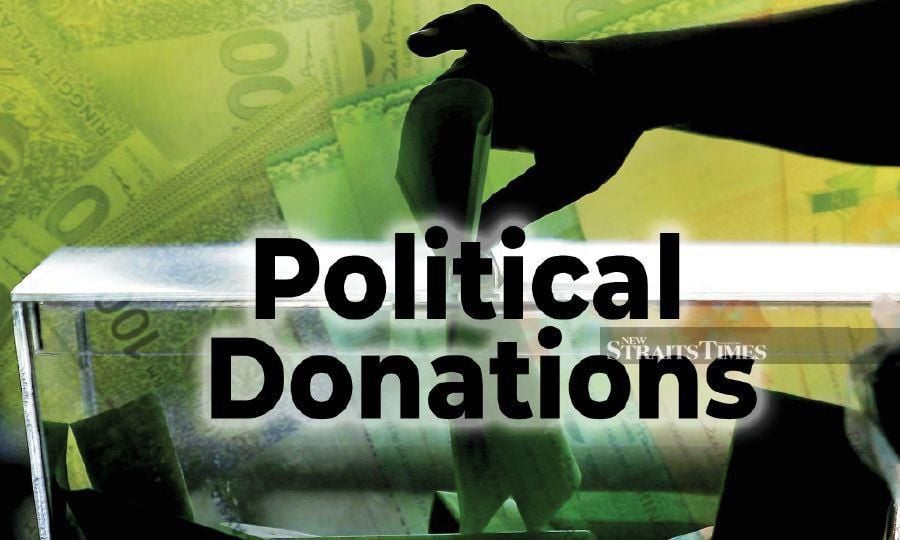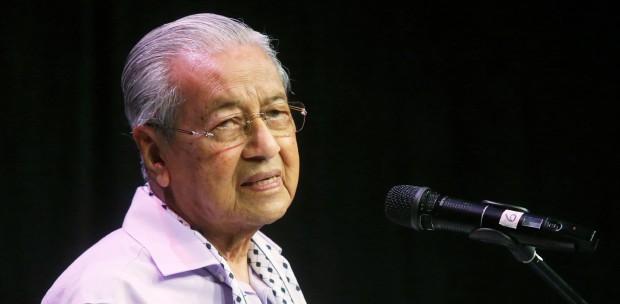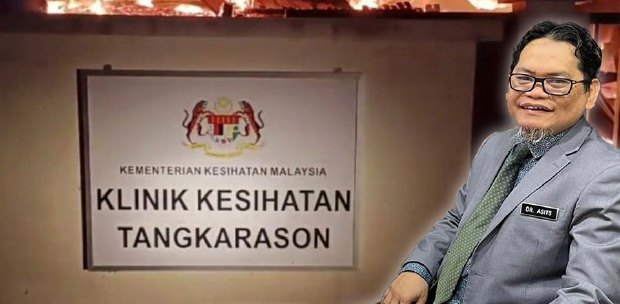It's uncanny, but every time politicians are docked for demanding or taking bribes and kickbacks, money laundering or outright thievery, they whip out a hoary defence of their unconscionable wealth — that they are the trusted recipients of political donations.
Behind this well-worn cliche is control of huge funds for political campaigns, their sources mysterious until the money trail — tracked assiduously by the anti-corruption authority — is unveiled at a subsequent trial.
Lately, "political donation" has been tossed about as the convenient go-to work-around means to purify and sanctify inexplicable stashes of cash.
This racket hasn't evolved since its advent decades ago, the pointed difference being a larger quantity after accounting for contemporary political considerations and personal greed. It's now in the brazen billions when millions used to be deemed satisfactory at one time.
On the premise of this clumsy defence, the only working strategy to wrest, regain or preserve power in government or constituency is to disburse cash to as many pivotal voters as possible under the pragmatic cost of doing election business.
If that's the case, what is the point of campaigning on issues, proposed policies, manifestoes, or a good old-fashioned character assassination of political opponents?
That, in realpolitik, is the sharp end of the rapier — to thrust, deflect and kill — while the blunt end of the cutlass handles the unseen but implied backend financing, the distributive machine of cynical political campaigns.
The projected expenditure for last year's Nov 19 general election spiked as high as RM100 million per major party. Who knew the skyrocketing cost of political campaigning was this insane? It begs the question: how, where and from whom could they hoard these planeloads of cash?
We'll cut to the chase: deduction tells us that key portions are funnelled by extremely wealthy cabals of individuals, their secretive outfits and corporate types.
As the pot sweetens, cash flow from considerable kickbacks, stemming from major government jobbery, kicks in.
But "political donation" lurches in a grey area because primarily, there is no singular law that monitors, controls and regulates political financing.
The Election Offences Act, enacted a lifetime ago to prevent corrupt and illegal practices during election campaigns, is void of empowerment to discern sources of funding, cap donations, and force the disclosures and declarations of funding.
Not all "political donations" are direct cash sponsorships: the ruling coalition consistently exploits its sizeable advantage under the guise of a caretaker cabinet.
These extraordinary expenditures are still a government liability, but it's paltry once substantial cash is spread to "buy" the good graces of the electorate, especially voters long fed on freebies of "pocket money, gifts and charity".
Globally, Malaysia is not unique in the vagaries of "political donation" machinations: the granddaddies of legal corruption are still the Americans, hinging on the precept that bribes masked as political donations are legal and ruled as free speech — a tenet embraced with near-religious fervour.
As "free speech" goes, the billionaire, corporate or special interest class freely inject unlimited cash into campaigns of pet lawmakers, in turn phasing out voices of ordinary citizens.
Amazingly, "free speech" cash also allows "dark money" contributions as vested interest groups can hide the identities of their super wealthy donors in dispensing their huge war chest.
That's why it is not uncommon for United States presidential candidates to amass between US$500 million and US$1 billion in donations from just a single election cycle.
Once victorious, this is where the payoffs begin their countdown: the president-elect, Congress representative or senator must now carry out the donors' bidding, even if it goes against majority aspirations.
Malaysia's political retail business may not be as sophisticated: ad buying is routine, but now, big money dives into social media to dominate and manipulate young voters.
It's unsurprising that urgent calls for political financing laws are largely ignored on the premise that enforcement could rock the "political donation" boat and the power, clout and influence that provides fat contracts and opulent accessories.
The sonorous cry of "political donation" is becoming an automatic response as defendants improvise in lathering this lumberingly ridiculous cover story.
If the "political donation" defence isn't working, there's always the witchhunt defence to fall back on.
The views expressed in this article are the author's own and do not necessarily reflect those of the New Straits Times






